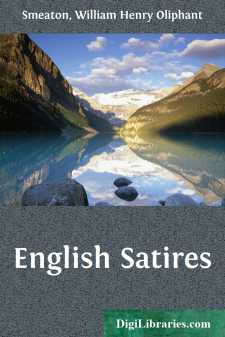Categories
- Antiques & Collectibles 13
- Architecture 36
- Art 48
- Bibles 22
- Biography & Autobiography 813
- Body, Mind & Spirit 142
- Business & Economics 28
- Children's Books 15
- Children's Fiction 12
- Computers 4
- Cooking 94
- Crafts & Hobbies 4
- Drama 346
- Education 46
- Family & Relationships 57
- Fiction 11829
- Games 19
- Gardening 17
- Health & Fitness 34
- History 1377
- House & Home 1
- Humor 147
- Juvenile Fiction 1873
- Juvenile Nonfiction 202
- Language Arts & Disciplines 88
- Law 16
- Literary Collections 686
- Literary Criticism 179
- Mathematics 13
- Medical 41
- Music 40
- Nature 179
- Non-Classifiable 1768
- Performing Arts 7
- Periodicals 1453
- Philosophy 64
- Photography 2
- Poetry 896
- Political Science 203
- Psychology 42
- Reference 154
- Religion 513
- Science 126
- Self-Help 84
- Social Science 81
- Sports & Recreation 34
- Study Aids 3
- Technology & Engineering 59
- Transportation 23
- Travel 463
- True Crime 29
William Henry Oliphant Smeaton
William Henry Oliphant Smeaton (1856–1914) was a Scottish historian, editor, and author known for his contributions to literature and historical biography. He wrote extensively on Scottish history and edited works for prominent publishing series such as "The Famous Scots Series". Some of his notable works include "Allan Ramsay" and "Tobias Smollett," where he explored the lives and contributions of influential Scottish figures. Smeaton's literary efforts played a role in popularizing historical narratives about Scotland and its cultural heritage.
Author's Books:
Sort by:
CHAPTER I THE FAMILY TREE 'Ye'd better let me gang doon wi' the wig, Miss Kirsty,' said Peggy, the 'serving-lass' in the household of Mr. James Ross, writer, of the Castlehill. 'Oh no! I'd as leif take it doon mysel' to Allan Ramsay's, for the sake o' the walk and the bit crack wi' the canty callant,' replied the young lady, a blush...
more...
I. PILGRIMAGE IN SEARCH OF DO-WELL. This opening satire constitutes the whole of the Eighth Passus of Piers Plowman's Vision and the First of Do-Wel. The "Dreamer" here sets off on a new pilgrimage in search of a person who has not appeared in the poem before—Do-Well. The following is the argument of the Passus.—"All Piers Plowman's inquiries after Do-Well are fruitless. Even...
more...



